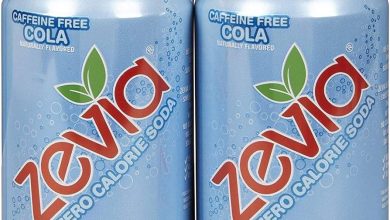Cauliflower (Cooked, Blanched, Drained, Without Salt)
Cauliflower is a versatile vegetable that serves as an excellent addition to various dishes. This low-calorie, nutrient-packed vegetable offers a mild, slightly nutty flavor that complements a range of meals. It is rich in vitamins and minerals while being naturally low in fat and carbohydrates, making it a perfect choice for those seeking a health-conscious diet.
Nutritional Information (Per 100g Serving):
| Nutrient | Amount |
|---|---|
| Energy | 23 kcal |
| Protein | 1.84 g |
| Fat | 0.45 g |
| Saturated Fats | 0.07 g |
| Carbohydrates | 4.11 g |
| Fiber | 2.3 g |
| Sugar | 2.08 g |
| Calcium | 16 mg |
| Iron | 0.32 mg |
| Magnesium | 9 mg |
| Phosphorus | 32 mg |
| Potassium | 142 mg |
| Sodium | 15 mg |
| Zinc | 0.17 mg |
| Copper | 0.018 mcg |
| Manganese | 0.132 mg |
| Selenium | 0.6 mcg |
| Vitamin C | 44.3 mg |
| Thiamine (B1) | 0.042 mg |
| Riboflavin (B2) | 0.052 mg |
| Niacin (B3) | 0.41 mg |
| Vitamin B6 | 0.173 mg |
| Folate | 44 mcg |
| Vitamin B12 | 0.0 mcg |
| Vitamin A | 1.0 mcg |
| Vitamin E | 0.07 mg |
| Vitamin D2 | 0.0 mcg |
Allergen Information:
Cauliflower is naturally free from common allergens such as gluten, dairy, nuts, and soy, making it a safe option for most individuals with dietary restrictions or sensitivities.
Dietary Preferences:
- Vegan: Cauliflower is plant-based and suitable for vegan diets.
- Gluten-Free: Naturally gluten-free, making it a safe choice for those with celiac disease or gluten sensitivities.
- Low-Calorie: Ideal for calorie-conscious diets and weight management.
- Low-Carb: A good option for those following low-carb or ketogenic diets.
- Paleo: Cauliflower fits into the paleo lifestyle, as it is a whole, unprocessed vegetable.
Advice:
When preparing cauliflower, blanching it before cooking can help preserve its nutritional content, particularly vitamin C. This vegetable can be steamed, roasted, or added to soups and salads for a healthy boost of nutrients. It also serves as a great alternative to grains, making it ideal for low-carb or gluten-free dishes like cauliflower rice or cauliflower pizza crust.
Conclusion:
Cauliflower is a nutrient-dense vegetable that provides a wide array of vitamins and minerals while being low in calories and fat. Its versatility in cooking and suitability for various dietary preferences makes it a staple ingredient in health-conscious kitchens. Whether enjoyed on its own, incorporated into a dish, or used as a substitute for higher-carb foods, cauliflower is a fantastic choice for anyone looking to improve their nutritional intake without sacrificing flavor.










